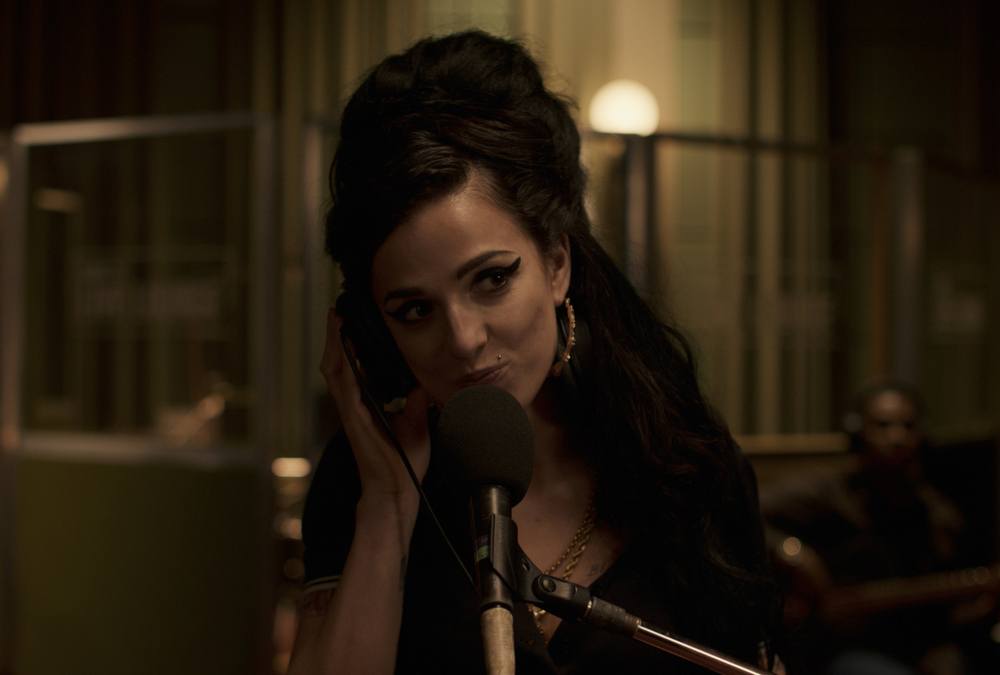Back to Black

Marisa Abela stars in BACK TO BLACK. (Photo: Focus Features)
The ferocious spirit and transgressive essence of its subject is largely absent from Back to Black, a mediocre Amy Winehouse biopic too eager to sympathize with the charismatic performer and persuade moviegoers to do the same.
Leaning into formula rather than providing genuine insight, the film seems reluctant to risk tarnishing the legacy of the late British singer. It depicts a burgeoning global superstar ill-equipped to deal with the pressures and perils of celebrity, and unable to stop the resulting destructive downward spiral.
The story starts by showing a more tender side of Amy (Marisa Abela), who hails from a devoutly Jewish fractured family in London in the early 2000s that includes an ailing grandmother (Lesley Manville) who garners much more attention than her hopelessly enabling father (Eddie Marsan).
Amy is fiercely independent and abrasively outspoken from a young age, yet also has a hidden playfulness and empowered self-confidence. Her stubbornness clashes with the oppressive patriarchal realities of the music business.
Even so, her feisty attitude ultimately helps her career blossom, along with a sultry voice that effortlessly modulates jazz and pop, culminating in her Grammy-winning 2006 breakthrough album, Back to Black.
Then there’s her volatile relationship with the charming yet unstable Blake (Jack O’Connell), who she meets in a pub and later marries. With her celebrity peaking, their codependency exposes Amy’s emotional vulnerabilities and intensifies her substance abuse and chronic alcoholism.
Still, she has the ability to flip a switch on stage or in studio. And when confronted by those close to her, she remains defiant. “Music is my rehab,” she declares. “It always has been.”
A radiant breakthrough portrayal by Abela (Rogue Agent) captures Amy’s mannerisms and stage presence, but also her deeper insecurities away from the spotlight.
Meanwhile, director Sam Taylor-Johnson (Fifty Shades of Grey) obviously has affection for the music, given the long takes and generous screen time she devotes to the performance sequences.
The screenplay by Matt Greenhalgh (Nowhere Boy) probes Amy’s diverse artistic inspirations and how they contribute to her unique look and style, in addition to her song catalogue. Unfortunately, the periphery characters feel thinly sketched, and the film rarely digs beneath her trademark beehive hairdo.
Judge the music for yourself, although Back to Black — unlike a superior 2015 Winehouse documentary — sings a slightly different tune with a familiar refrain.
Rated R, 122 minutes.